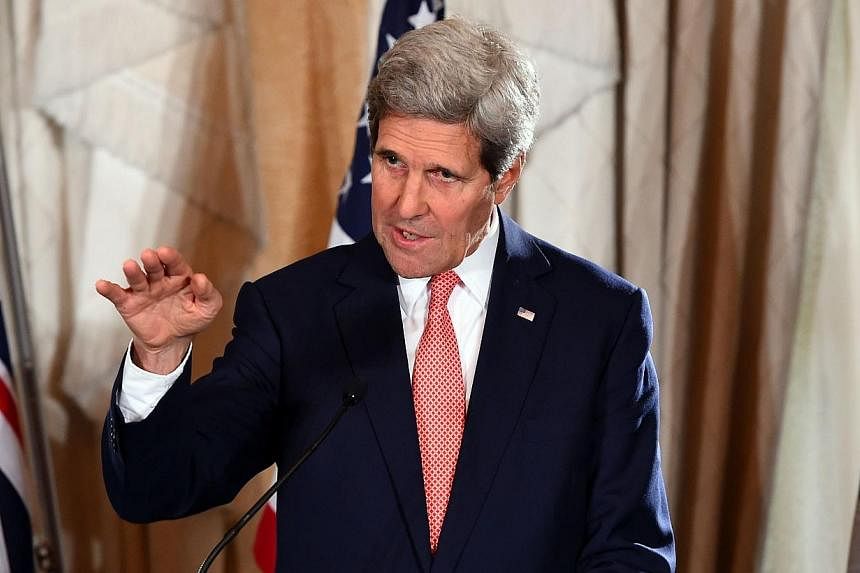HONOLULU (REUTERS) - A constructive relationship between Washington and Beijing is necessary to maintaining regional stability despite China's behaviour in the South China Sea, US Secretary of State John Kerry said on Wednesday at the end of an eight-day trip to Asia.
In a major policy address in Hawaii, Kerry focused on the Obama administration's so-called pivot to Asia instead of crises engulfing Iraq, Afghanistan, Gaza and Ukraine. Outside the East-West Centre where he gave the speech, a small group of demonstrators protested Israel's actions in Gaza.
Kerry said President Barack Obama had asked him to redouble efforts in building relations with countries in Asia and the Pacific. In particular, those efforts would be focused on ensuring lasting economic growth, energy efficiency, regional cooperation and promoting human rights and democracy, he said.
"The United States is an Asian-Pacific nation, and we take our enduring interests there very seriously. We know that America's security and prosperity are closely and increasingly linked to the Asia-Pacific," he said.
Kerry referred to tensions in the South China Sea, which was the focus of a recent summit of the 10-member Association of Southeast Asian Nations (Asean) he attended in Myanmar. During the meeting, China rebuffed efforts by Washington to rein in Beijing's assertive actions in the disputed waters.
"The United States takes no position on questions of sovereignty in the South and East China Seas, but we do care about how those questions are resolved," Kerry said. "We care about behavior."
"We firmly oppose the use of intimidation, coercion, or force to assert a territorial or maritime claim by anyone," he added, "and we firmly oppose any suggestion that freedom of navigation and overflight and other lawful uses of the sea and airspace are privileges granted by big states to small ones."
Washington has proposed a freeze on provocative acts in the South China Sea and urged countries to work together to solve the claims through peaceful means.
Kerry also underscored the need for more democratic reforms in some countries, emphasizing backsliding in countries such as Thailand.
"We are disturbed by the setback to democracy and hope it is a temporary bump in the road," Kerry said, urging the Thai authorities to lift restrictions on political activists and to restore civilian rule through free and fair elections. "We will continue to promote human rights and democracy in Asia, without arrogance but also without apology," he added.
Thailand's military seized power in May after months of street protests left the country teetering on the brink of more bloodshed. The country recently inaugurated a new national assembly dominated by military figures, in what the junta called a step toward the transition of power back to democratic government.

